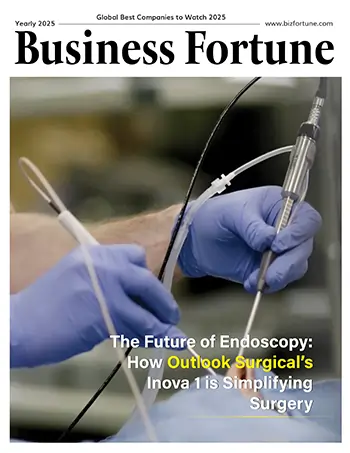Home Industry Supply Chain Management Detour to Disaster: Container ...
Detour to Disaster: Container Shipping Emissions Soar as Industry’s Decarbonization Delay
Supply Chain Management

Business Fortune
24 July, 2025
According to recent data, carbon emissions from the container shipping industry have skyrocketed, rising 14% globally and, even more startlingly, by 45% in the EU.
This week, Rob Mortimer, CEO of Fuelre4m, a Dubai-based company that uses fuel technology to reduce emissions, said as much in a post on the Maritime Executive's website. "That's not a long-term projection," Mortimer remarked. That is the current situation.
Let's examine the specific situation! Many cargo ships still steer clear of the Red Sea when entering and exiting the Suez Canal to avoid being attacked by the so-called Houthi rebels in South Yemen. Rather, they circumnavigate the Cape of Good Hope for thousands of miles. Emissions have inevitably increased significantly as a result of those additional operational kilometers. However, pointing the finger at geopolitics can be viewed as a convenient scapegoat, according to Mortimer. According to Mortimer, the industry still talks about decarbonization as if they are actively pursuing it. In actuality, they are not prepared for testing. Not in terms of operations. Not in terms of technology. Not in the mind.
He also mentioned that years of underinvestment in practical, short-term remedies are to blame for the current emissions surge. Instead, they go thousands of miles around the Cape of Good Hope for their journey. But they are years behind where they ought to be in terms of real day-to-day operational change.
Fuel efficiency, for instance, is too frequently misinterpreted and confused with vessel performance rather than the actual efficiency of the fuel, according to Mortimer.
The irritating thing, he says, is that there are already better solutions. It is now possible to make fuel more effective, cleaner, and tougher to use. According to him, first test findings indicate significant decreases in greenhouse gases, sulfur oxides, and nitrogen oxides, as well as up to 20% improved fuel performance.
So why doesn't this technology have a stampede? According to Mortimer, the truth is that they claim to wish to decarbonize. All too frequently, though, they promise to do it later, either when it's simpler, less expensive, or someone else has already done it. "The tools exist," he said at the end. There is the technology. There is an urgency. The will is what's lacking. And they are solely responsible for that.


































